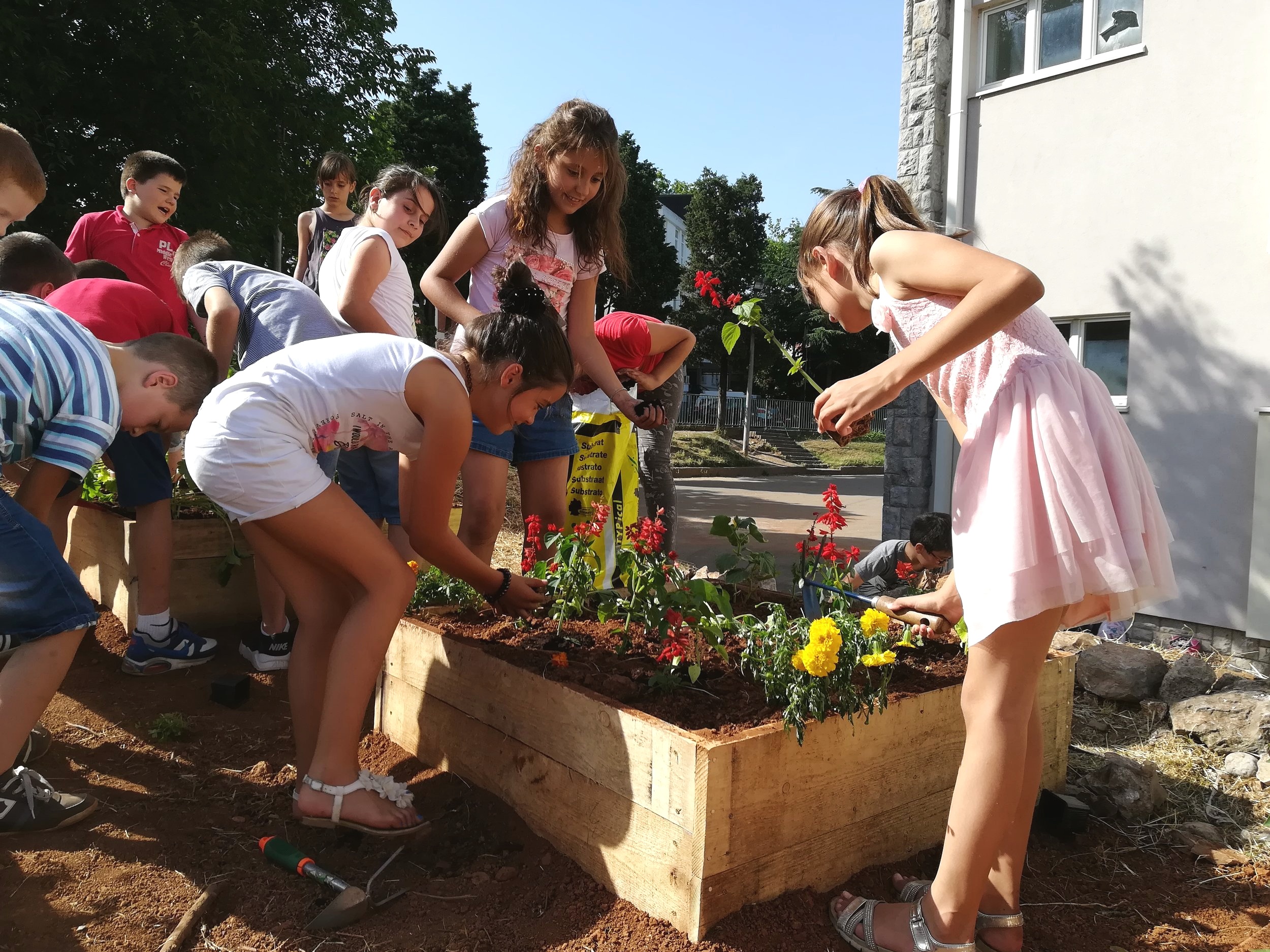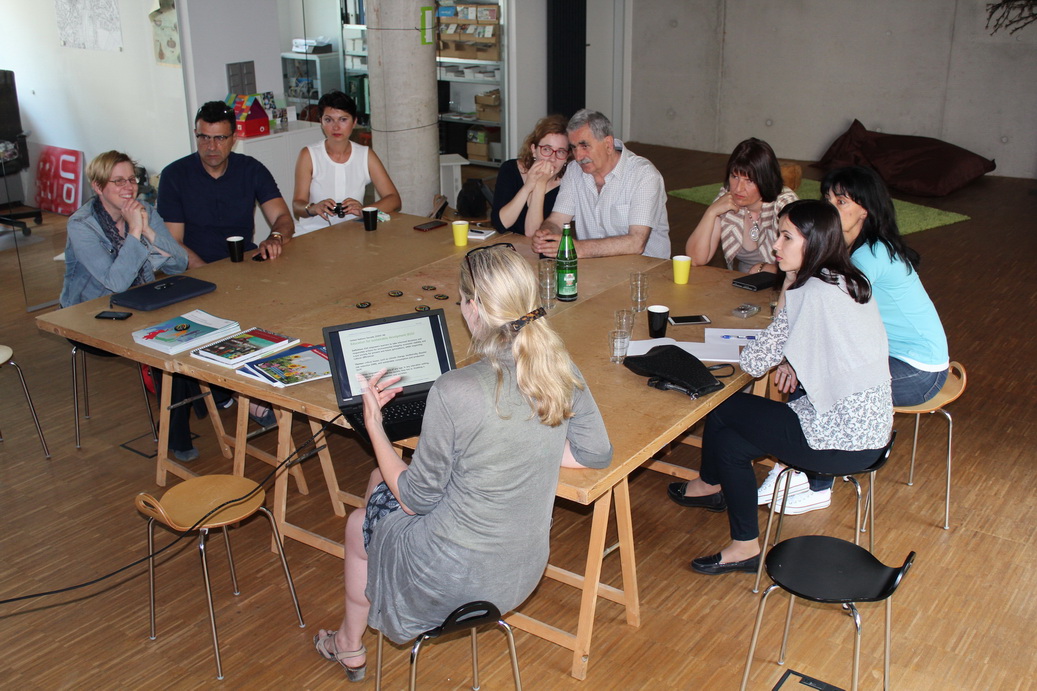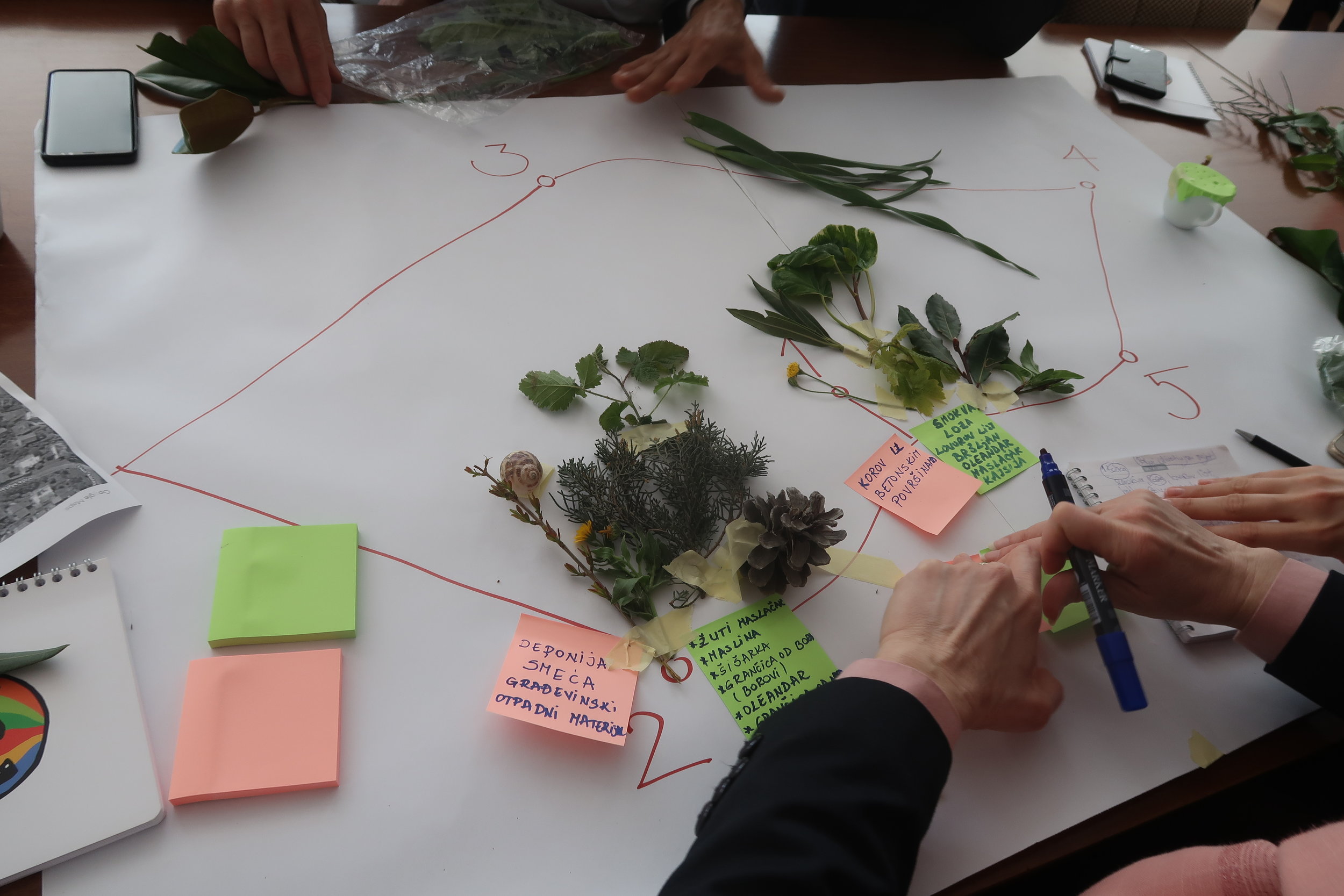The School4City project, a partnership between Bureau for Education Services and EXPEDITIO - Center for Sustainable Spatial Development (NGO), Montenegro and JAS - Jugend Architektur Stadt e.V., Germany (NGO) aimed at build teachers’ capacity on Education for Sustainable Development.
This activity began in September 2016, with practical activities in the pilot school in the southern part of Montenegro, where High School Kotor has been selected as a pilot school.
The idea was to work with students practically in order to acquaint them with the basic ideas and principles of sustainable cities and places, the problems of urban areas and the possible ways of improving the quality of life. For example, during the workshops students acquired knowledge and skills of how to design a project for improving their own places of living, evaluate a space around them, create imaginary buildings, co-design their school yard etc.
Students were encouraged to propose creative ideas which promote some of trans-disciplinary topics, such as, green cities, green roofs and facades, solar panels, renewable energy sources, landscape protection, preserving agricultural land, mobility and networking, smart houses, new building trends, etc., and some of these ideas were implemented jointly with their teachers, local artists and creative actors. The workshop was held with a group of second grade students at High School Kotor that are interested in improving the environment in which they live. During the workshop, assisted by the teachers all students in second grade were encouraging to recognize the challenges they perceive as important for improving the quality of their life in school and in their immediate surroundings. Some possible interventions were also considered that could contribute to making the school a better and more creative place for students.



During the project, the following activities took place:
Development of guidelines through conducting a survey about the level of knowledge, understanding and application of good practices in the field of sustainable cities education in Montenegro and Germany
Analyses of the current school curricula in Montenegro (Analysis has been completed for all three levels of education. A connection has been established between the cross-curricular topic Evaluation and Planning of Space and all school subjects.)
Questionnaires in pilot schools and kindergartens (A questionnaire has been created, distributed to schools and completed by teachers and students.)
Development of set of guidelines for improving the overall quality of education about sustainable cities in Montenegrin schools and kindergartens has been designed starting from the results of the analysis of questionnaires and analyses of the current school curricula
Development of guidelines through conducting a survey about the level of knowledge, understanding and application of good practices in the field of sustainable cities education in Montenegro and Germany
The overall objective of the training is to enable teachers to implement a cross-curricular theme Evaluation and Planning of Space – Sustainable Cities and Neighborhoods. Specific objectives of the training are to improve the knowledge about space as a resource, evaluation and planning of space in terms of its sustainable development and the impact of human activity on space in relation to economic challenges and climate changes; about efficient location, organizing and combining of different types of settlements and human activities; about different types and styles of art; to increase the understanding about characteristics and principles of sustainable cities and neighborhoods (energy, waste, water, transport, green infrastructure, public spaces); about urbanization around the world, its benefits and problems, about values of well-designed buildings and spaces; to raise awareness of the impact (positive and negative) of entrepreneurship in the local community; of the importance of well-designed built environment for healthy local entrepreneurship.
OUTCOMES
Improved level of understanding and ability to apply sustainable cities concept among the teachers and children/students in kindergartens, primary and high-schools in Montenegro;
Increased capacities of educators in Montenegro to better integrate the urban sustainability principles into their primary subjects;
Enhanced collaboration between Montenegrin and German stakeholders dealing with education about sustainable cities.
Learners were able to analyse climate change linkages with sustainable development (environmental, economic, socio-cultural context), explain the importance of long-term planning of resources use, energy efficiency in industry, construction sector, public sector and transport, use of renewable energy sources, clean technologies introduction and the like, analyze diverse methods/approaches to climate change mitigation, recognize risks related to climate change using specific examples in their local community and country, know about the relation of environment pollution and food quality, know the importance of food safety for human health, understand forest role in ecosystem, know the ways pollution affects forests, know about the concept of energy efficiency, understand the necessity of transitioning to renewable sources of energy, understand that sustainable energy system implies changes in generation, distribution and use of energy, understand that economic crisis reduce the opportunities of poor societies to use new technologies, identify main differences between sustainable and unsustainable tourism development, explain what waste is, how it is generated and where it ends up, give the advantages and disadvantages of incineration and recycling, explain the importance of waste as resource, present ways for reduction of quantity of waste, suggest proper attitude towards waste disposal and use of waste and propose solutions to environmental issues.
